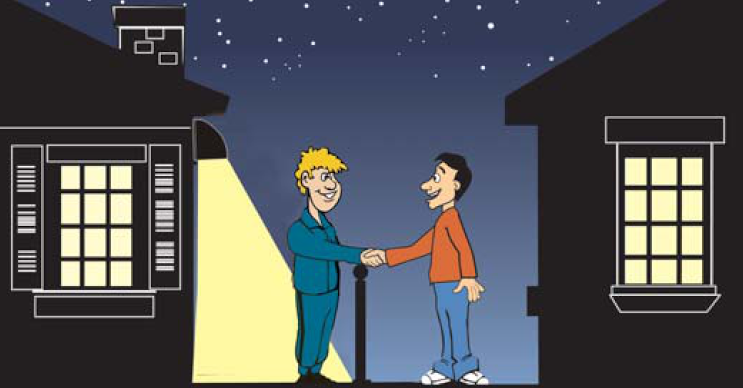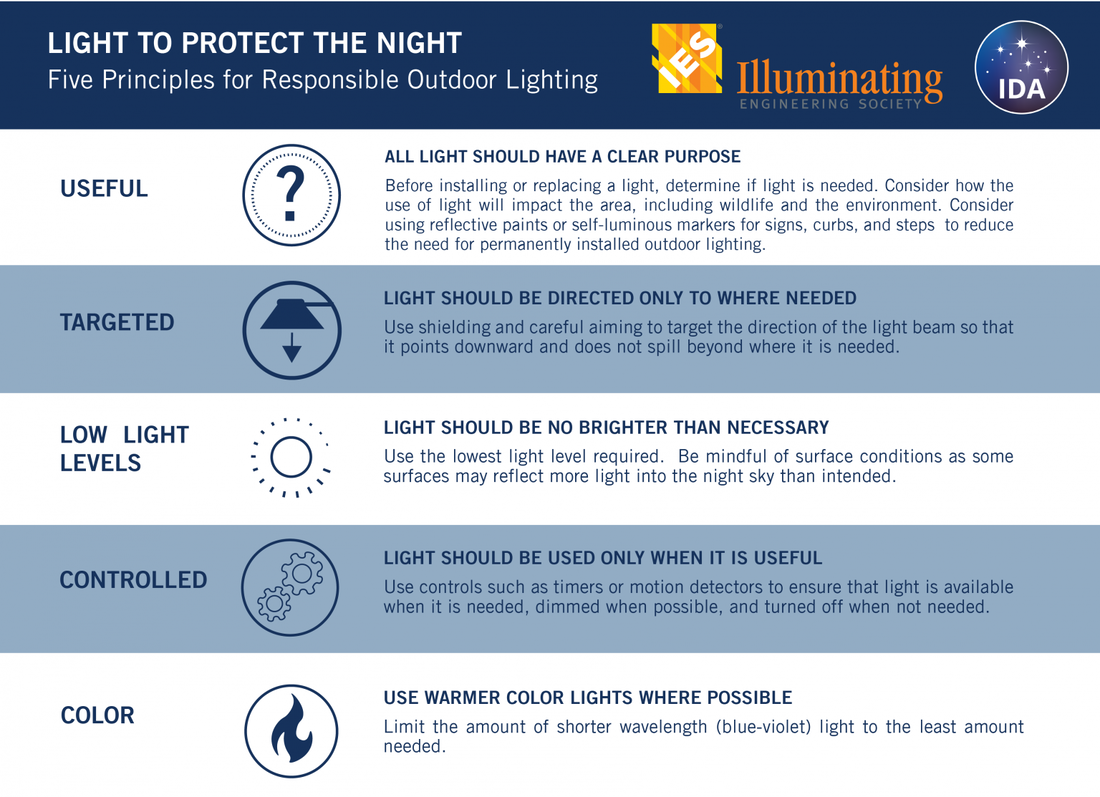Archives
June 2024
Categories
All
|
Back to Blog
What Is "Good-Neighbor Lighting"?3/1/2022 Credit: RAB Lighting 685 words / 3-minute read Few issues make for more unpleasant relations between neighbors like outdoor lighting disputes. On one side of the street, a homeowner blasts light into the darkness beyond. On the other side, a neighbor spends another sleepless night as that light floods into a bedroom. They may exchange some angry words. Responses sometimes escalate to the level of civil lawsuits. Can neighbors stop these problems before they ever start? And can lighting actually promote neighborliness? Here, we briefly examine why conflicts arise, how the careless application of lighting contributes, and ways property owners can tread more lightly on those around them. Why people light — and why they fight People have plenty of good reasons to light their property at night, whether for aesthetics or safety. Yet outdoor light at night is often used indiscriminately. Homeowners may prefer extensive lighting of architectural details and landscaping. Some believe that brightly lighting outdoor spaces deters criminal behavior. Others don't realize the impacts of their lighting on neighbors, having added lights one by one over many years. A few assert authority to light their property as they please, a right that supersedes their neighbors' right to the peaceful enjoyment of their properties. In rural places where large distances separate homes, this may not be much of an issue. But in higher-density settings like suburbs, there isn't much of a buffer or setback between and among homes. In city centers, where commercial and residential land uses commingle, there may be no separation. Most neighbor disputes involve light trespass, a condition in which light emitted on one property falls on another. Often the trespass is unintentional. The root of the problem is a lack of mindfulness about the responsibilities neighbors have to one another. Simple consideration of the "off-site impacts" of lighting is usually enough to prevent quarrels before they start. Think of others when lighting "Good-neighbor lighting" respects property rights and prevents disagreements from the start. For new installations, think about where light goes after leaving fixtures where you're considering placing them. What message does it send? Is the light too bright? Remember color, too; in many parts of the world, people consider blue-rich white light harsh. And don't forget that there may be certain legal requirements in your jurisdiction. New lighting installations, and even some replacements, may need municipal permits. Sometimes those installations require professional installation, such as by certified electricians. There are many ways to address neighbor complaints after installing lighting on your property. Adding shielding to lights may be enough to prevent light trespass. In other cases, adjusting the orientation of fixtures is enough. Installing timers or motion-sensing switches can resolve complaints about lighting that is on all night. Each of these interventions allows the property owner to continue using the lighting as desired. In other cases, on further reflection, property owners may decide the offending lighting isn't necessary. Simple removal of an unneeded fixture can solve the problem. Keep it civil
When discord arises, don't lose your cool. Try to keep relations friendly and constructive. No one wants to force an issue to come before a court. Bear in mind that many lighting feuds involve grievances well beyond actual lighting concerns. The key is to act in good faith. Take neighbor complaints seriously and try to make requested changes. Consider how you would feel if a neighbor's light intruded into your home every night. We all want to live in safe communities where people act with some consideration toward each other. The way we light our exterior spaces at night is no exception. As urbanization continues around the world, people find themselves living closer to others than ever before. High-density residential situations tend to exacerbate conflicts and disagreements. But where outdoor lighting is concerned, these outcomes aren't inevitable. When done right, residential lighting can be a win-win prospect. But to do that, we have to think in different ways about how we approach the issue in general. Neighbor disputes about lighting can be difficult to navigate, but we can help. Contact us today.
0 Comments
Read More
|
 RSS Feed
RSS Feed


